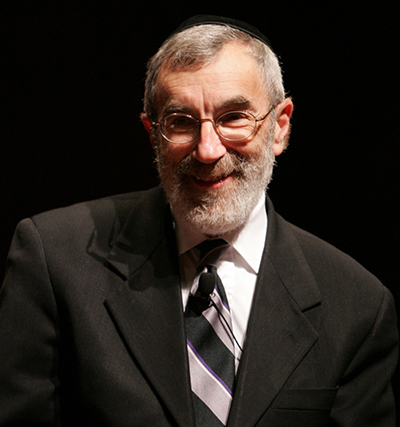Paul Schoenfield

Born: January 24, 1947, Detroit, MI
Died: April 29, 2024, Jerusalem, Israel
Trio for Clarinet, Violin, and Piano
- Composed: 1990-1991
- Premiere: July 15, 1991, Portland, Oregon by David Shifrin (clarinet), Ik-Hwan Bae (violin) and the composer (piano).
- Duration: approx. 19 minutes
Paul Schoenfield began studying piano at age six and wrote his first composition the following year; he later studied piano with Julius Chajes, Ozan Marsh and Rudolf Serkin. Schoenfield received his Doctorate of Musical Arts degree from the University of Arizona (at age 22) after earning an undergraduate degree at Carnegie-Mellon University in Pittsburgh. He worked for several years in the Minneapolis-St. Paul area as a free-lance composer–pianist and taught in Toledo before serving on the faculty of the University of Akron from 1988 to 1993, while his wife was doing her medical residency at Mt. Sinai Medical Center in Cleveland. He thereafter devoted himself to composition and teaching while dividing his time between Israel and the United States, serving on the faculty of the Cleveland Institute of Music in 2007–08 and teaching at the University of Michigan from 2008 until his retirement in 2021. Paul Schoenfield died in Jerusalem on April 29, 2024.
Schoenfield was awarded grants and fulfilled commissions from the National Endowment for the Arts, Ohio Arts Commission, Rockefeller Fund, Minnesota Commissioning Club, American Composers Forum, Meet the Composer, Chamber Music America, Soli Deo Gloria of Chicago and many other organizations; received a Cleveland Arts Prize in 1994; and was a Pulitzer Prize finalist in 2003 for his song cycle Camp Songs. Schoenfield’s music has been performed both on television and radio nationally and internationally and by such leading ensembles as the Cleveland Orchestra, New York Philharmonic, Netherlands Radio Philharmonic, Minnesota Orchestra, Philadelphia Orchestra and Haifa Symphony Orchestra. His compositions include the opera The Merchant and the Pauper (based on a story by Rabbi Nachman of Breslov); works for orchestra, piano, voice and chamber ensembles; and a concerto (1998) for Cleveland Orchestra Principal Violist Robert Vernon. Recordings of his music have been issued on the Angel, Decca, Innova, Vanguard, EMI, Koch, BMG and New World labels. Schoenfield was also active as a pianist, touring the United States, Europe and South America as a soloist and with groups including Music from Marlboro; among his recordings are the complete violin and piano works of Béla Bartók with Sergiu Luca. A man of many interests, Paul Schoenfield was also an avid scholar of mathematics and Hebrew.
Writing in the third person, the composer noted, “Paul Schoenfield is one of an increasing number of contemporary composers whose works are inspired by the whole range of musical experience—popular styles (both American and international) and vernacular folk traditions, as well as the established forms and idioms of cultivated music-making (which are often treated with sly twists). Schoenfield frequently mixes within a single piece ideas that emerged from entirely different musical worlds, making them ‘talk’ to each other, so to speak, and delighting in the surprises that their interaction elicits.”
Of his Trio for Clarinet, Violin and Piano, Schoenfield wrote, “It was in 1986 that clarinetist David Shifrin first asked me to write a chamber work for violin, clarinet and piano, but it was not until the summer of 1990 that I was able to begin the project. In addition to my primary goal of composing a work for David, the Trio realizes a long-standing desire to create entertaining music that could be played at Chassidic gatherings as well as in the concert hall. The opening movement, Freylakh, is a joyous dance that is almost frenetic in the intensity of its merry-making. The March is bizarre and somewhat diabolical in nature. Nigun is a slow, lyrical movement of introspection. The work closes with a lively Kozatske, or Cossack Dance. Each of the movements is based partly on an East European Chassidic melody. The exact source of many Chassidic melodies is unknown. Frequently they were composed by the Tzadikim of the 18th and 19th centuries, but as often as not they appear to have been borrowed from regional folk songs, Cossack dances and military marches. In their Chassidic versions, however, the melodies and texts were completely reworked, since the borrowed tunes which originated in a completely different milieu could not satisfactorily express the Chassidic ideal that regarded the exuberant expression of joy as a religious duty.”
—Dr. Richard E. Rodda